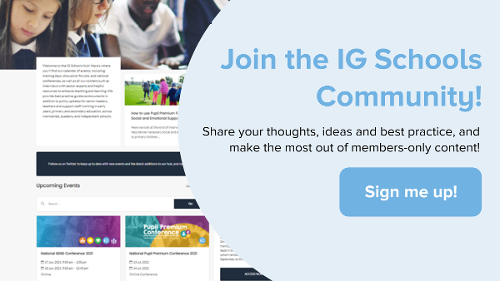It’s been a challenging few years for everyone, but students have faced a particularly difficult set of circumstances. As the world shifts and changes around us, so does the job market, and students are likely to be looking at their careers with a new perspective. All of this, of course, in addition to the personal impact of the pandemic on identity, purpose, friendships, relationships and motivation.
With that in mind, here Eloise Skinner, social impact entrepreneur, author, and Founder of The Purpose Workshop and One Typical Day, outlines three key things educators can be doing to guide students at this time, helping them navigate their unique path.
First, allow students the space to explore
Perhaps you remember, from your own time as a student, the sense of external pressure as you tried to choose your path. Students often find themselves guided towards a particular choice early on – once strengths and early preferences are identified, a career path is usually mapped out and followed. But, along the way, it’s important to allow students the space to explore, to make a few debatable decisions, and eventually to find a path that holds personal meaning for them.
This is where educators can step in, offering support, guidance and careers resources. In fact, one of the most supportive things educators can do, at this point, is share their own experiences and insights into different career paths (or connect students with others who have insight). Very often, at the start of a career journey, it’s personal stories that have the most influence and impact.
Second, showcase all the available options
The world of work is changing fast. Career options that were previously overlooked – perhaps the idea of entrepreneurship, or crafting a portfolio career, have grown in popularity and accessibility. And, on the other hand, traditional careers (the kind our parents might have wanted for us) are increasingly less attractive. Educators should be aware of trends and developments in the careers industry, and work – as much as possible – to let students know about the diversity of options out there.
And finally, help students build a strong foundation
It’s not typical to dive into questions of meaning and purpose in an educational setting, especially when students are just starting out on their path. These questions are often reserved for a later, more reflective period of life – perhaps mid-life (or even beyond). But there’s a strong argument for doing things differently. In fact, these questions – of personal meaning and purpose – might actually be the most important questions that students can be asking themselves early on.
As for the questions themselves (meaning, purpose, and so on), they can seem a little intimidating. After all, how many of us would say we’ve really figured out the ultimate ‘meaning’ of our lives? (I know I haven’t, even after years of studying this material from an academic perspective.) But there’s an easier way to approach the questions, a way that doesn’t involve grand statements or big commitments. Instead, educators can encourage students to find a sense of personal meaning whenever they are, in whatever stage they’re at. On the most basic level, this can be done by engaging students in discussions about the things they enjoy, the places they find a sense of purpose, or their hopes and dreams for the future. On a more formal level, it might involve introducing students to tools like mission building, value statements and purpose-planning.
If you’re interested in these tools, check out the free resources for educators over on www.thepurposeworkshop.uk/schools.
A final note
Above all, educators have a responsibility to model the values and principles they hold out for students. In practice, this means finding a sense of personal purpose – as an educator! – and then demonstrating a purpose-led attitude in any work done with students. It may not seem like a significant step, but, in many ways, this can be the most important contribution an educator can make to a student’s journey.
Access more expert insights and guidance via the IG Schools Hub.
